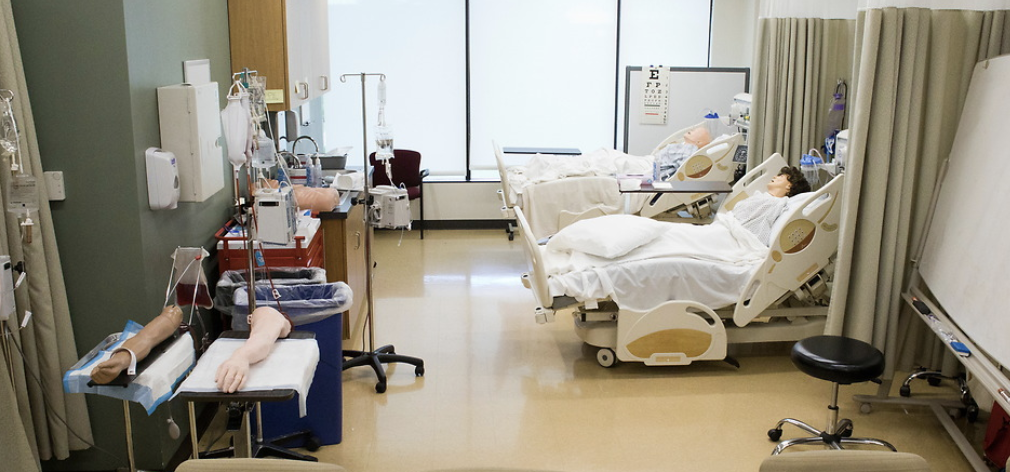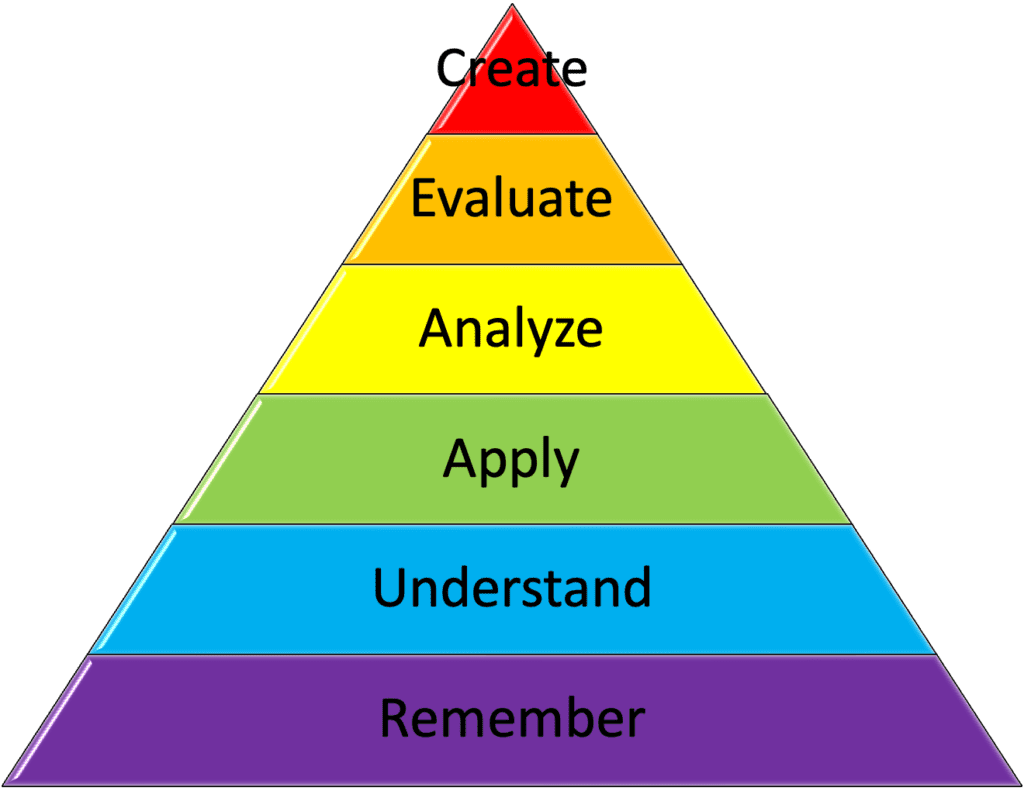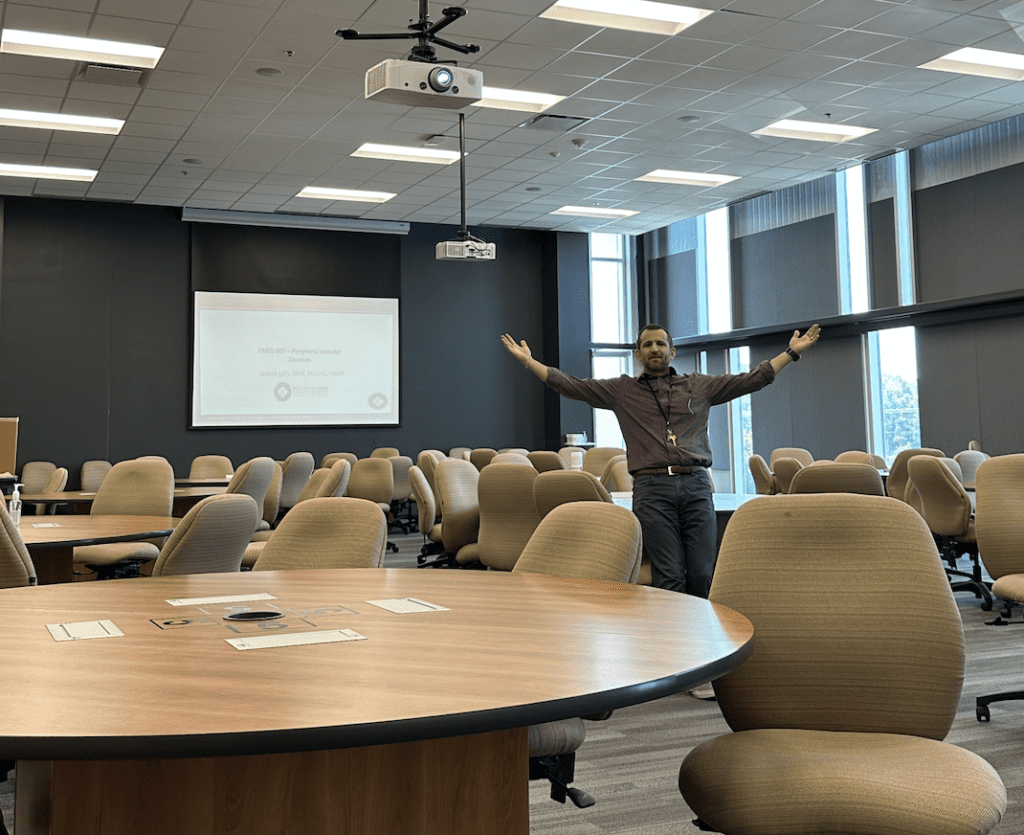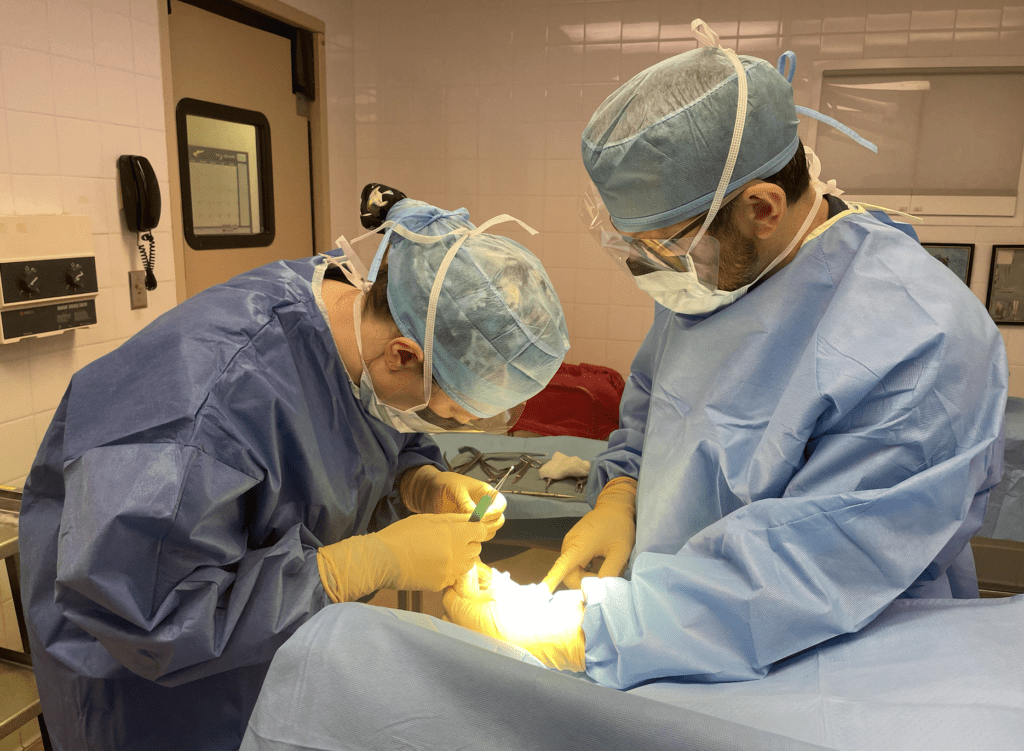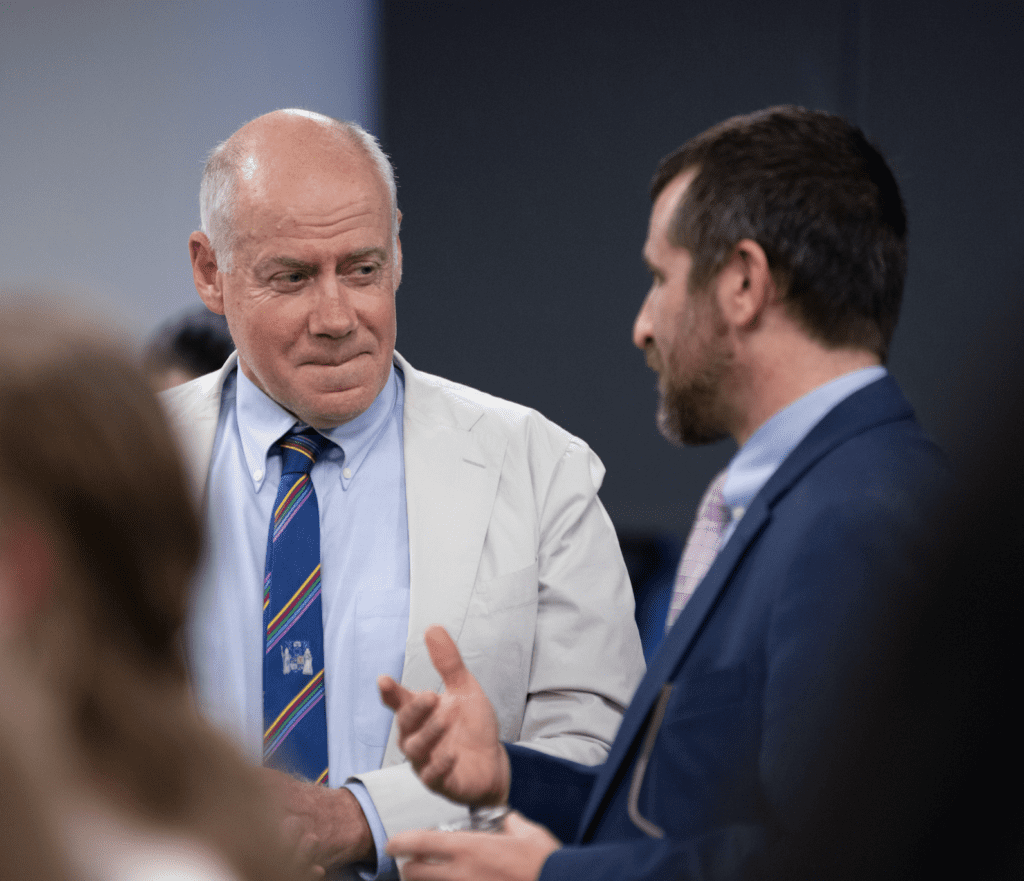The field of medicine is one of constant evolution, with new technologies and techniques emerging to improve patient care. One of the most transformative advancements in medical education has been the integration of simulation. This innovative approach provides aspiring healthcare professionals with realistic, hands-on training experiences that can significantly enhance their clinical skills and decision-making abilities. In this blog post, we’ll delve into the numerous benefits of incorporating simulation into medical school curricula.
Realistic Replication of Clinical Scenarios
Simulation technology enables medical schools to recreate a wide range of clinical scenarios, from routine outpatient visits to complex surgical procedures. This realism allows students to practice in a controlled environment without the pressure and risks associated with actual patient care. They can gain confidence, refine techniques, and make mistakes in a safe space, ultimately improving their clinical proficiency.
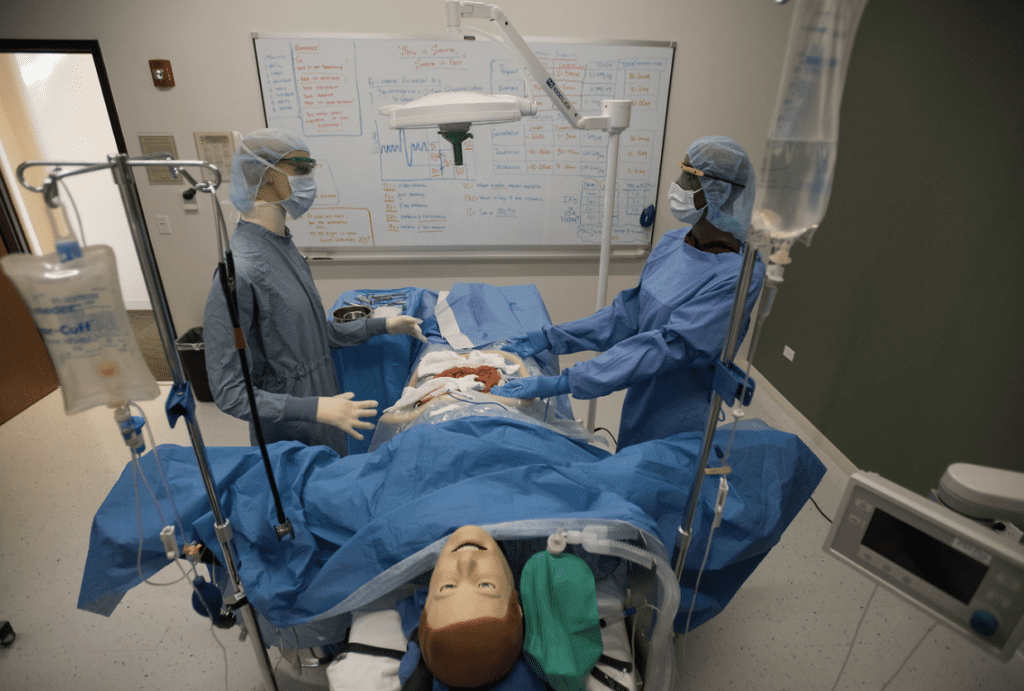

Enhanced Procedural Proficiency
Through simulated environments, medical students can repeatedly practice medical procedures, such as intubation, suturing, and IV line placements. This repetitive practice hones their muscle memory and fine-tunes their techniques, leading to greater precision and confidence when they encounter similar situations in real clinical settings.
Interdisciplinary Collaboration
In a simulated setting, students from different healthcare disciplines (e.g., medicine, podiatry, pharmacy) can collaborate on cases, fostering a sense of teamwork and mutual respect. This interdisciplinary approach mirrors the collaborative nature of healthcare delivery in real-world settings, ensuring that future healthcare professionals are well-prepared for effective teamwork. https://www.rosalindfranklin.edu/about/interprofessionalism/
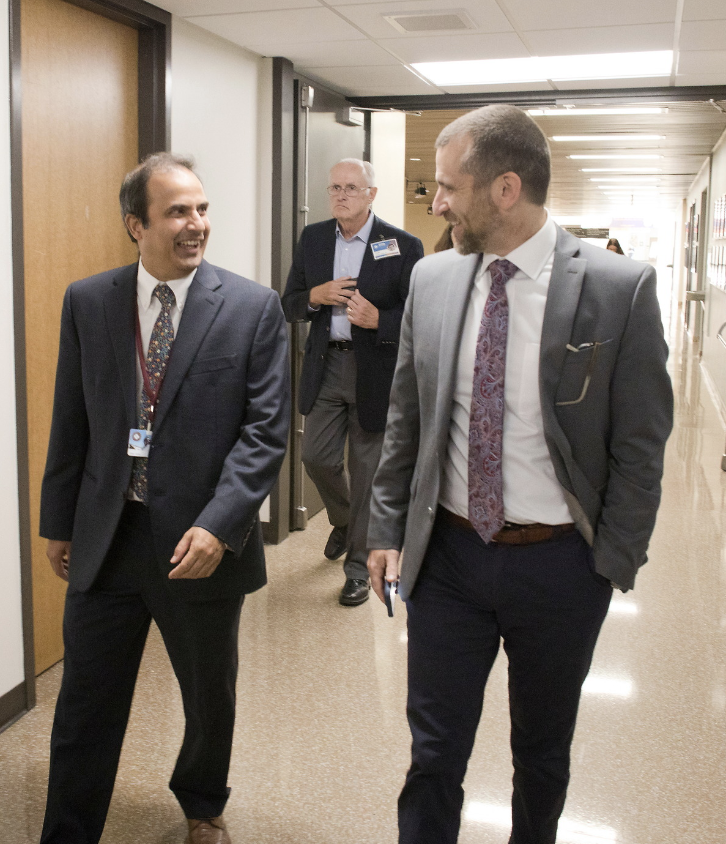

Exposure to Rare or High-Stakes Scenarios
Certain medical conditions or emergencies are relatively rare, making it challenging for students to encounter them during their clinical rotations. Simulation technology allows educators to expose students to these high-stakes scenarios, providing valuable experience in managing critical situations without compromising patient safety.
Development of Critical Thinking and Decision-Making Skills
Simulated scenarios require students to think critically, analyze information, and make decisions under pressure. This training helps them develop effective clinical reasoning skills, enabling them to prioritize tasks, interpret diagnostic information, and formulate appropriate treatment plans.
Feedback and Evaluation
Simulation allows for immediate and constructive feedback, which is crucial for the growth and development of medical students. Instructors can provide real-time guidance on technique, decision-making, and communication skills. Additionally, recordings of simulation sessions can be reviewed for comprehensive debriefing and self-assessment.
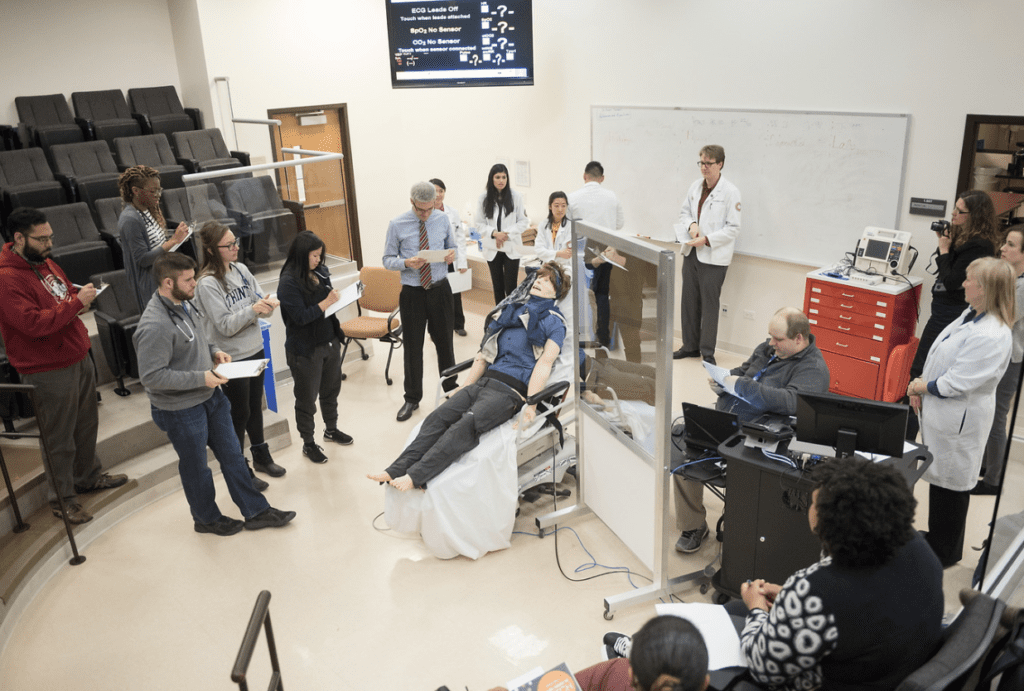

Ethical Dilemma Resolution
Medical ethics and decision-making are integral components of healthcare practice. Simulated scenarios can include ethical dilemmas, allowing students to grapple with complex situations in a controlled environment. This promotes thoughtful reflection and prepares them to navigate similar challenges in their professional careers.
Cost-Efficient and Resourceful Training
Utilizing simulation technology can alleviate the strain on limited clinical resources and reduce the costs associated with traditional training methods. Moreover, it allows students to gain exposure to a broader range of cases, enhancing their overall clinical preparedness.
Conclusion
The incorporation of simulation into medical school curricula represents a pivotal step forward in medical education. By providing realistic, hands-on experiences, simulation technology equips future healthcare professionals with the skills, confidence, and critical thinking abilities necessary for successful clinical practice. From enhancing procedural proficiency to fostering interdisciplinary collaboration, the benefits of simulation are far-reaching, ensuring that medical graduates are poised to deliver high-quality, patient-centered care in an ever-evolving healthcare landscape.


Leland Jaffe DPM, FACFAS
Associate Professor and Dean
Podiatric Physician and Surgeon
North Chicago, Illinois

